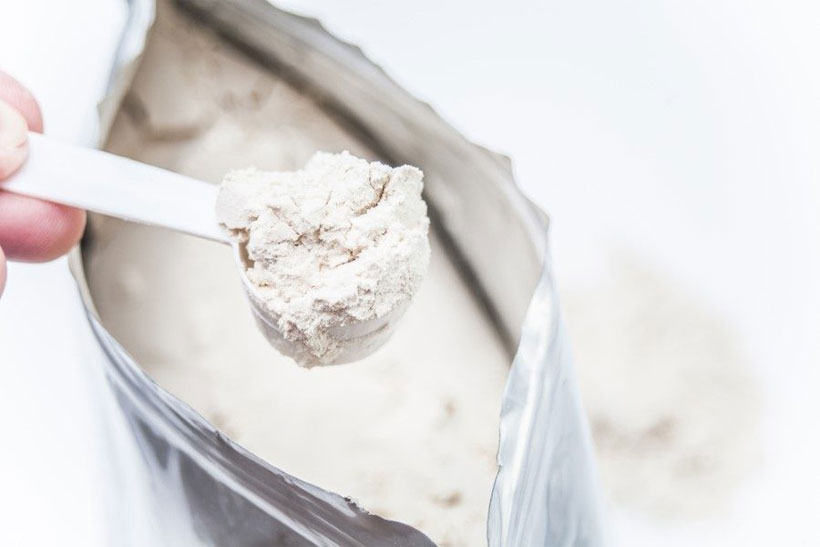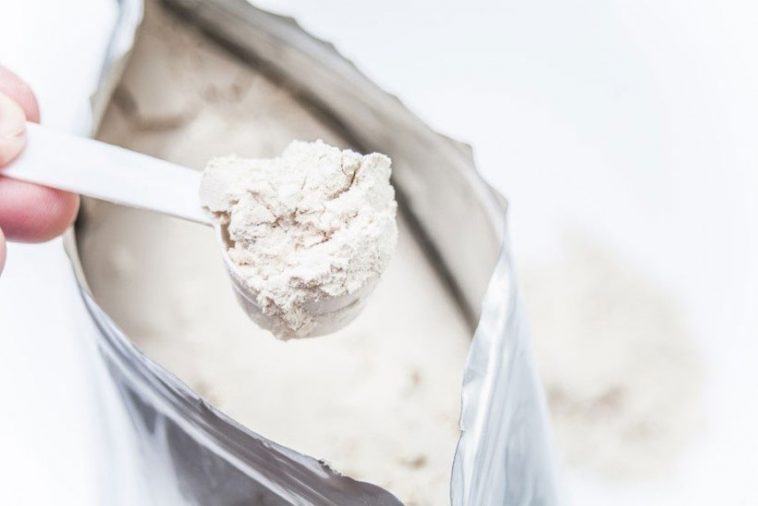- Like
- SHARE
- Digg
- Del
- Tumblr
- VKontakte
- Flattr
- Buffer
- Love This
- Save
- Odnoklassniki
- Meneame
- Blogger
- Amazon
- Yahoo Mail
- Gmail
- AOL
- Newsvine
- HackerNews
- Evernote
- MySpace
- Mail.ru
- Viadeo
- Line
- Comments
- Yummly
- SMS
- Viber
- Telegram
- JOIN
- Skype
- Facebook Messenger
- Kakao
- LiveJournal
- Yammer
- Edgar
- Fintel
- Mix
- Instapaper
- Copy Link
Introduction
 Step into any grocery store today, never mind a vitamin or health food store, and you’ll be bombarded by an array of protein powder offerings.
Step into any grocery store today, never mind a vitamin or health food store, and you’ll be bombarded by an array of protein powder offerings.
Not only are there dozens of brands, but they each boast a unique protein composition.
How can you know which one to choose?
If you’re an athlete seeking the perfect protein for your workout, focusing on these four factors can help you filter through the noise.
The Great Debate: Plants Versus Animals
The two major types of protein powder on the market are animal protein and plant protein and the basic differences are self-evident.
In protein powders, animal protein is typically sourced from whey, while plant protein may be soy, pea, or some other combination of ingredients.
At a molecular level, though, the biggest difference between these two types of proteins is that animal proteins are complete, which means they contain all necessary amino acids.
Plant proteins, on the other hand, are incomplete, which means you may need additional supplements.
For vegetarian and vegan athletes, the choice is a simpler one. While whey protein is derived from milk and thus some vegetarian athletes still use it, vegan athletes are restricted to plant protein options.
And interestingly, despite the nutritional perspective that plant proteins are incomplete – and vegan athletes do need to supplement or plan their diets carefully to get certain amino acids – plant protein sources may ultimately be healthier.
Furthermore, pea protein, which is among the most popular protein sources right now, is nearly a complete protein, meaning even vegans can get high quality protein from a simple source.
Evaluate The Add-Ins
Once you’ve chosen a protein source, the biggest difference between various protein sources are the added nutrients.
Though some protein powders boast the purity of their blends, focusing exclusively on protein combined with some added flavorings, others combine protein with a superfood blend.
This helps to round out the nutritional profile of the powder, introducing foods containing complementary proteins.
Quality Or Quantity
Research into plant and animal proteins suggest that whatever the profile of the product – animal or plant, complete or incomplete protein – animal proteins are typically more bioavailable and people don’t usually need to eat as much of them to get sufficient nutrition.
In other words, if you’re only concerned about efficiency, then animal protein is the way to go.
Plant proteins may not be as efficient but they do have other nutritional benefits, such as added fiber and beneficial phytochemicals that animal protein sources can’t offer.
Though a portion of users find that the extra fiber leads to bloating, others struggle with whey protein because of dairy sensitivities.
If you try one protein powder and find that you experience unpleasant symptoms, try changing protein forms to see if they’re caused by one of your dietary additives.
The Big Picture
Choosing a protein powder ultimately comes down to a series of considerations, including what the rest of your diet looks like – whether you eat a lot of red meat and need to boost your vegetable intake – and whether you have a condition like diabetes that requires proper carbohydrate control.
If you’re concerned about how choosing a protein powder will impact your health beyond the gym, it’s worth speaking to your doctor about your overall nutritional needs.
Conclusion
Protein powders are a great way to enhance your diet and they can be a convenient nutritional supplement for athletes, but the most important factor is to ensure that you’re eating a balanced diet and getting enough protein and calories.
Your protein supplement should be making up a gap in your overall nutritional profile based on your physical activity, so make sure you’re looking at the big picture when choosing a protein powder for optimal results.
About Shannon Clark
Shannon holds a degree in Exercise Science and is a certified personal trainer and fitness writer with over 10 years of industry experience.

